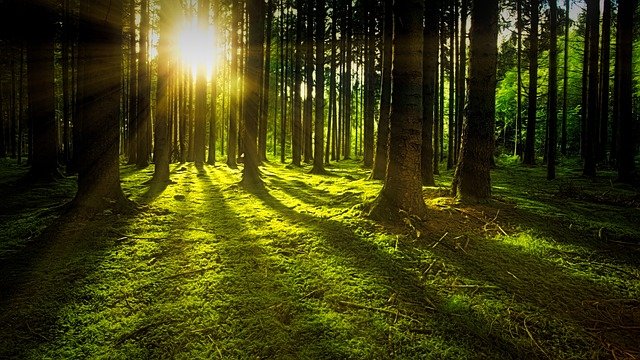
They produce Oxygen
People often joke that if trees produced free WiFi, everyone would advocate for them to be planted around our cities. However, they do produce Oxygen, the element fundamental to our lives and existence on earth. In one season, a mature leafy tree can manufacture adequate oxygen to allow ten people to breathe. It is beneficial, especially in densely populated areas like cities. Oxygen levels in high populated and polluted areas are expected to be six per cent or lower.
They store and soak up Carbon and Carbon Dioxide
Trees everywhere, and especially in the cities, play an important role as carbon sinks. It means that as part of the carbon cycle, they store carbon. This plays a large part in reducing the effects of climate change. A single mature tree can soak up to forty-eight pounds of carbon dioxide in one year. Researchers think that the earth’s forests soak up to forty per cent of manmade carbon dioxide emissions before they can reach the ozone layer and trap more heat.
Since trees are large and denser than smaller plants, they can absorb higher amounts of CO2 gas. The estimated tonnes of carbon that is stored in London’s trees are around 2,367,000t. This is around the value of a hundred and forty-seven million to the UK’s economy.
They purify our air
Trees not only soak up carbon dioxide from the air but also absorb other toxins and pollutants that are emitted by human everyday activities. Trees are more crucial than ever as the air pollution in urban areas these days is increasingly high. It means that the air we breathe in urban areas has reached or possibly exceeded toxic levels.
It is because in every ten people are living in cities and towns. The most successful trees are those planted in a location that suits them so that there is little need to manage them. Trees planted in suitable climates are disease-resistant and live longer.
Protecting people from flooding
Trees capture rainwater on the surface of their leaves and also absorb water from the ground through their roots. One mature tree can soak up to four hundred and fifty litres of water each day. This reduces soil erosion when it rains and filters the water into the cities’ drainage networks as well.
Trees are especially crucial for this function in cities where large parts of the ground surface are made up of materials like concrete or tarmac. These materials are impermeable, so sudden heavy downpours can cause flash flooding as the water cannot flow as it has no place to go. You might want to make yourself familiar with the different types of tree works that can be done for example Tree Surveying.
They keep the air cool
Once trees absorb water, they release it into the atmosphere as water vapour through the process of evapotranspiration. The process results in a cooling effect. Trees also give shade to buildings and the ground around where they are planted. These areas automatically become cool without the need to use energy.
One mature tree has the effect of ten air conditioning units working for about twenty hours in a day. The cooling effect of trees is beneficial in cities as they reduce the urban heat island effect. This effect can cause the average temperature in cities to be several(7) degrees higher.